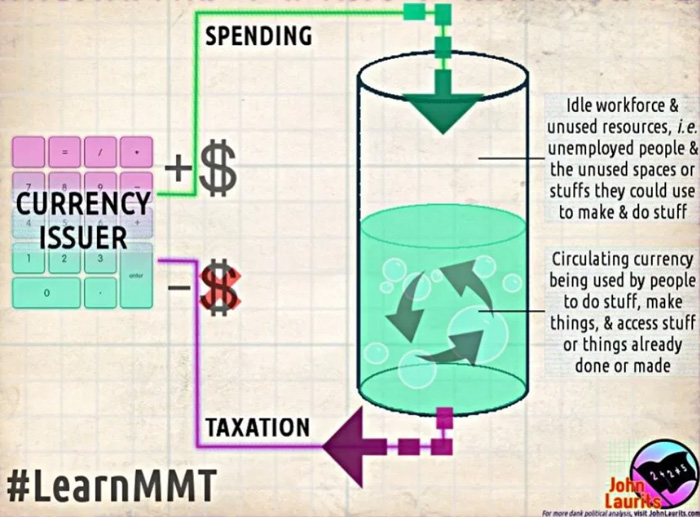Rethinking Lifestyle
Government Created Money

Have you been wondering where our federal government is finding all the money to support those who are now without jobs or without customers? I have! Where is the money coming from, and when will we have to pay it back? Well it seems maybe we won’t have to pay it back. At least that’s what “modern monetary theory” is saying.
Way back, long before Canada was a country, there was a shortage of currency in Lower Canada. In order to deal with this, it was agreed that the governor of the colony would take playing cards, put his signature on these cards and this would now be money. So the governor created money.
Question: whose money was that? Whom did this belong to? Well, the people. Certainly not to the governor, and if there was a bank at that time, not to the bank. So what could the governor, acting on behalf of the people, do with that newly created money? He had several options. He could distribute it equally among the people, he could decide the Quebec City fortifications needed bolstering, so he would motivate people to work on these fortifications by paying them with this new money. Similarly he could use this money to build a medical centre and pay staff to work there, or he could use it to pay teachers. Or he could give it to those who had had a streak of bad luck, such as illness or a house fire, and were now dependent on the charity of others. He would have these options and more.
Under what circumstances would the introduction of such new money be bad? It would be bad if everyone in the colony was fully employed (carrying out economic activity, that is trading furs), so that by offering money for the above activities people would stop fur trading activities, and instead engage in this non-economic work. But if this newly created money incentivized people who had not been working to begin working or others to work more, what’s the downside of that? Or if it were used to support people who had experienced hard luck so they would not be dependent on the charity of others, could this not be applauded?
This is exactly the situation Canada finds itself in today. We now, suddenly, have a significant portion of the workforce unemployed, facing financial hardship as a result of the COVID 19 closures and fears. The likelihood of these people finding other, new work is slim, no matter how hard they look, at least on the short run. What is the negative effect of giving these people created money for temporary support so our economy can get back on its feet?
The deficit is the difference between money coming in and money going out. In my household the deficit becomes debt. But I’m a user of money, not a creator of money. But that is not true for our federal government that is able to create money. For a government that owns a currency, a deficit does not necessarily become debt.




